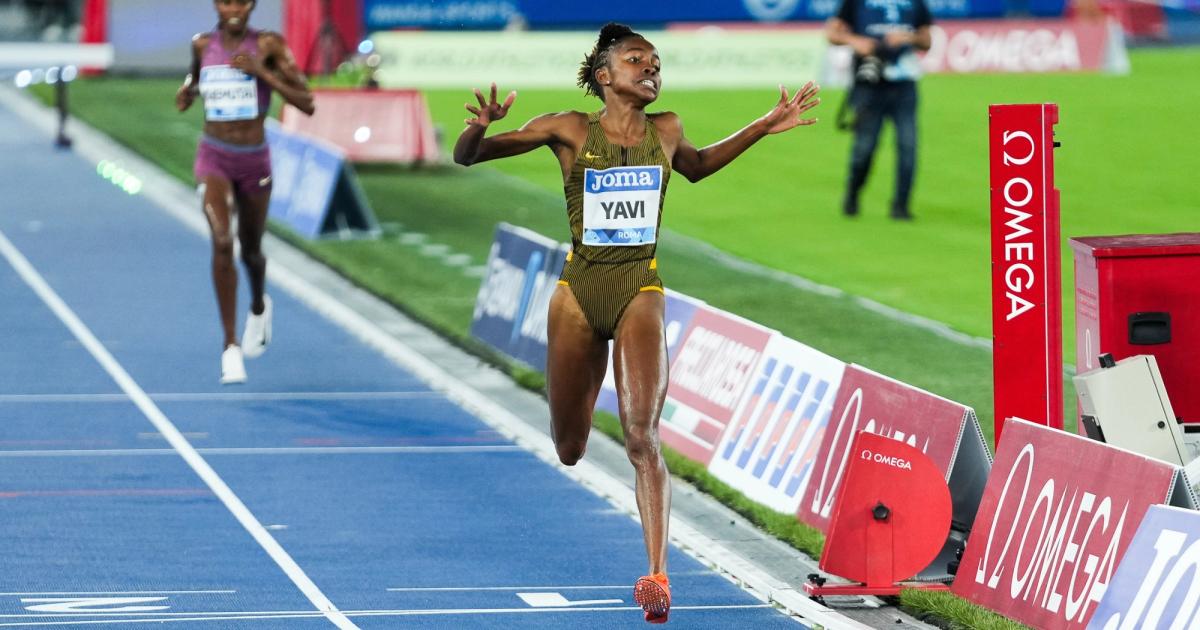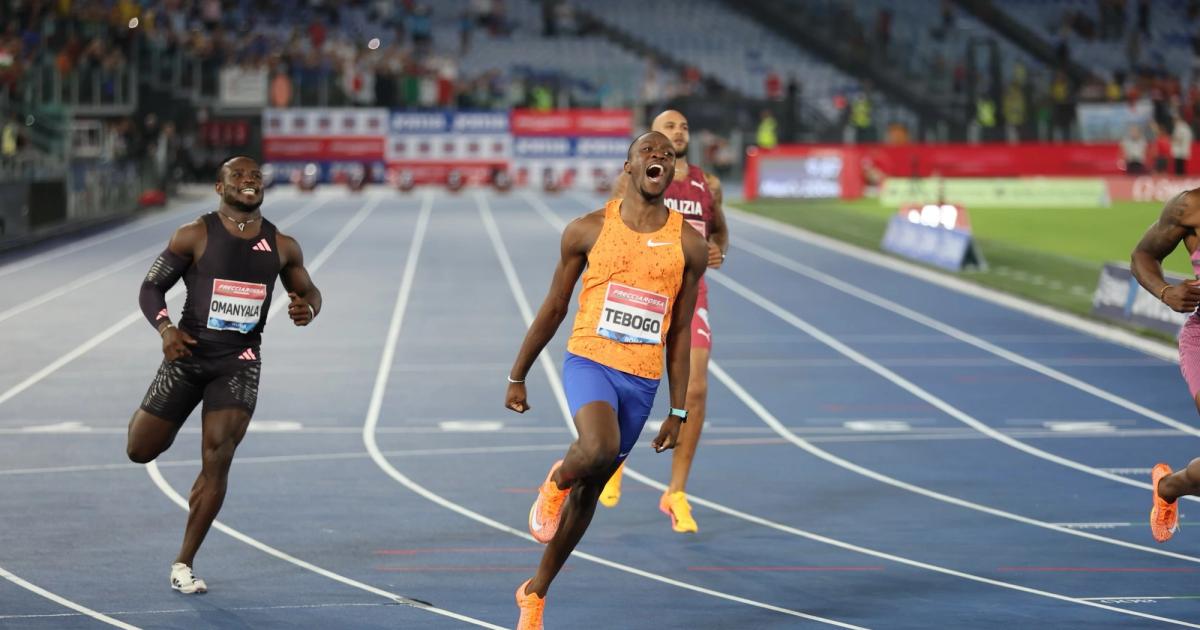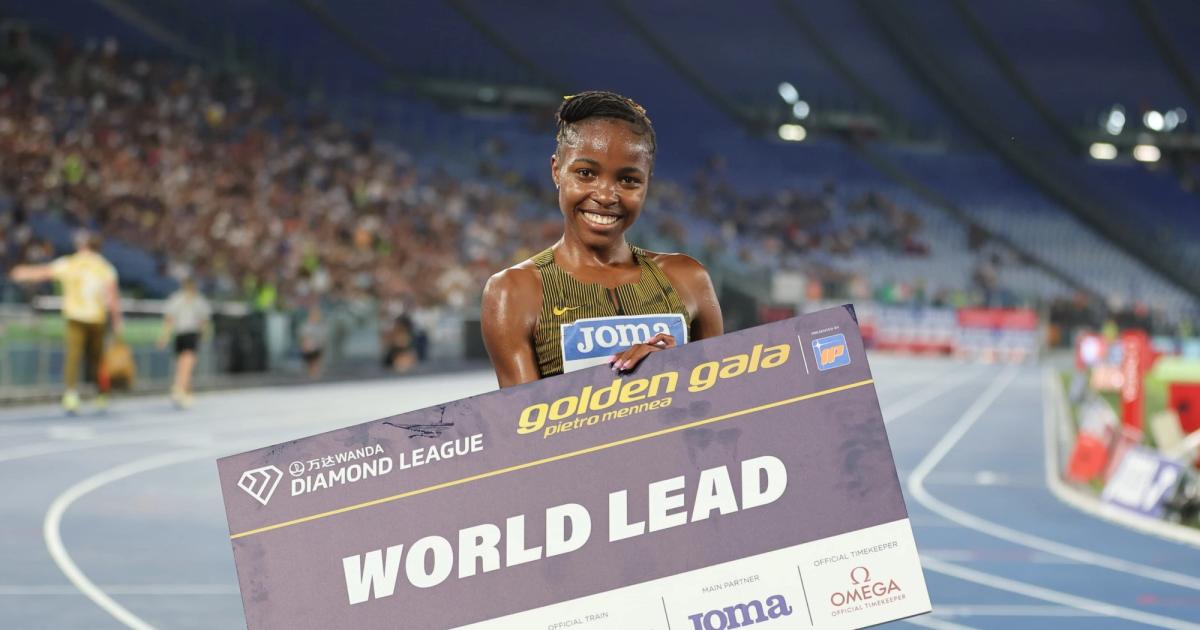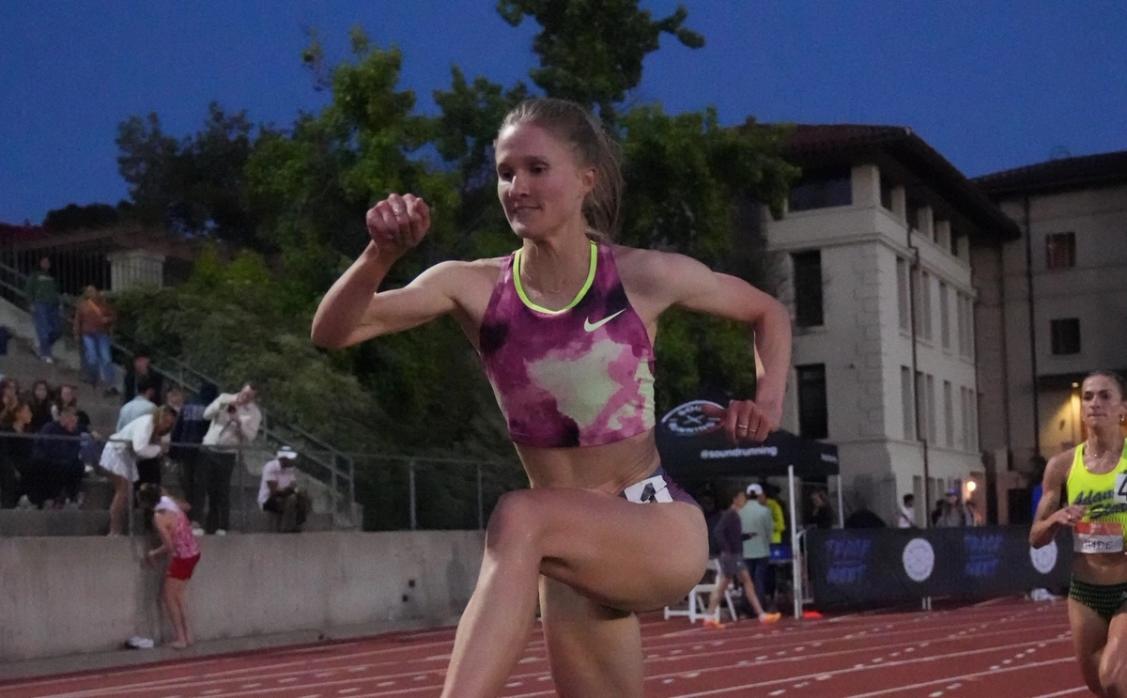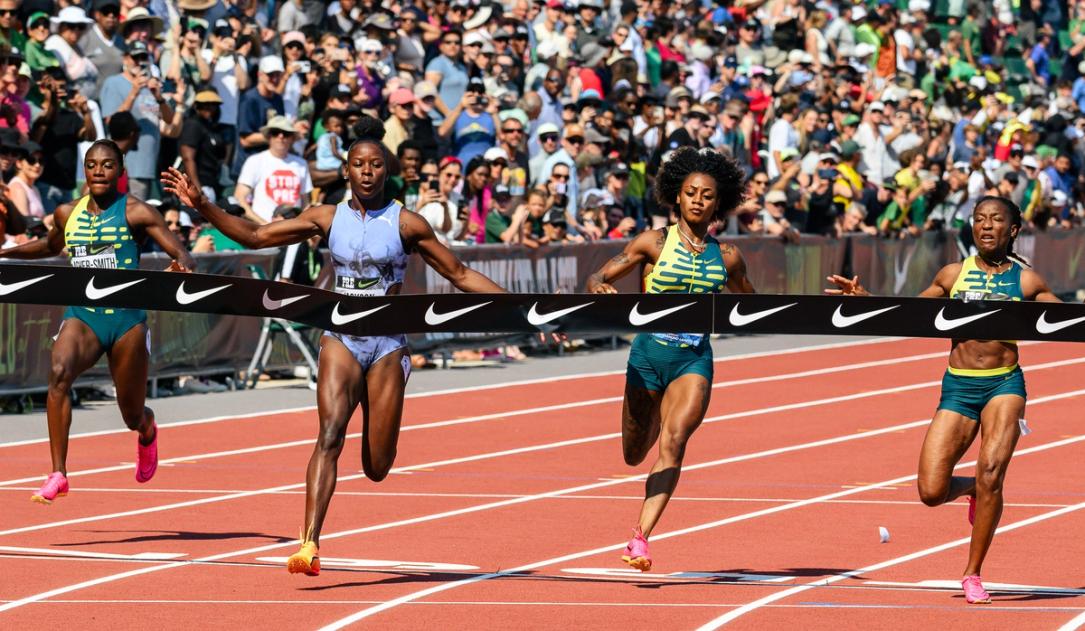By David Melly
September 4, 2024
If you kicked off your Labor Day weekend by tuning into the 2024 Golden Gala, a.k.a. the Rome Diamond League, one result probably stuck out to you: World/Olympic champ Winfred Yavi winning the steeplechase in 8:44.39, just 0.07 seconds off Beatrice Chepkoech’s 2018 world record.
Wait, eight-FORTY-four? I think you mean 8:54. No? Really?!
While sub-9 steeplechase performances have become relatively common in the last decade, this was only the second sub-8:50 in history (the third came seconds later when Peruth Chemutai finished behind Yavi in 8:48.03). With all the hoopla over super spikes, wavelights, and the fast times they produce, this was the first time since Chepkoech’s record-setting run that anyone had gotten within 6 seconds of her mark, and aside from Yavi and Chepkoech’s 2023 Prefontaine Classic battle, the next-best pre-2024 performance was Norah Jeruto’s World Championship-winning 8:53.02 from 2022.
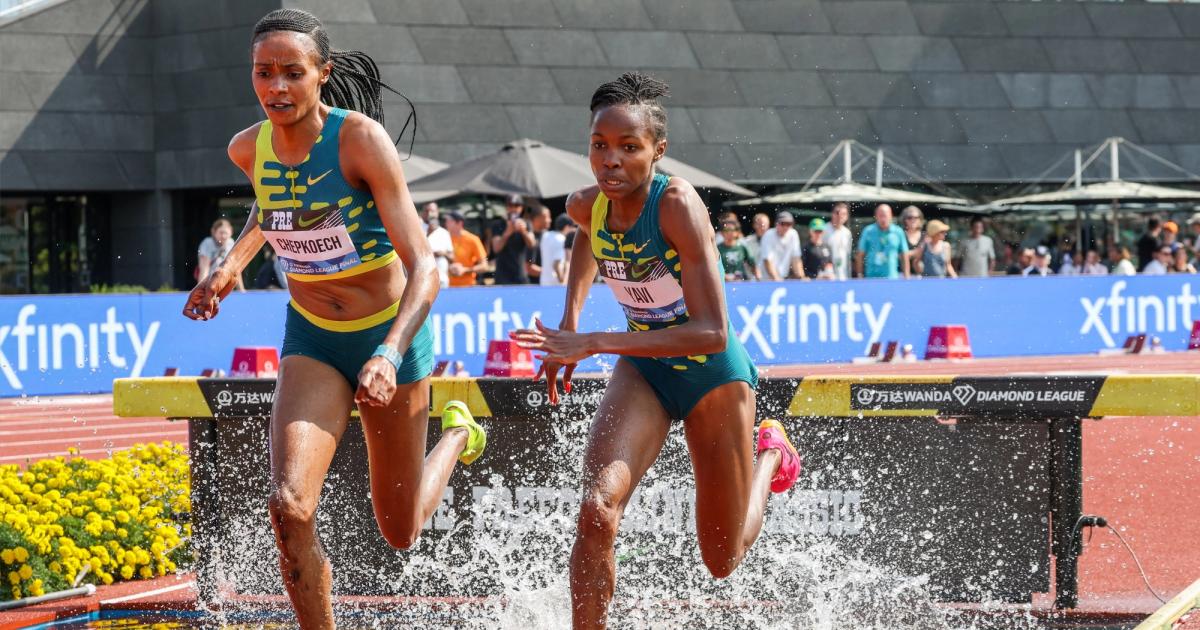
Winfred Yavi and Beatrice Chepkoech battling it out in last year’s Prefontaine Classic 3000m steeplechase. (Photo by Kevin Morris / @Kevmofoto)
It’s not like there are no other good steeplechasers around to threaten Chepkoech’s spot atop the all-time list. Yavi’s been competing in global championships since 2017, along with Chemutai, the 2021 Olympic champ, and Jeruto. In fact, 10 of the 13 sub-9 performers in history are active in 2024. So why did it take this long for anyone to get remotely close?
Part of the answer is that Chepkoech’s run in 2018 took the world record in this relatively young event into a whole new ZIP code. Remember – the women’s 3000m steeple is the newest individual Olympic event, only added in 2008, so there hasn’t been a hundred years of record attempts by the best athletes in the world.
Since Gulnara Samitova-Galkina set a world record of 8:58.81 in the first Olympic steeple, it’s only been broken twice: first by Ruth Jebet, who ran 8:52.78 in 2018 before getting busted for EPO, and then by Chepkoech. Jebet’s mark is still officially on the books, but if you take her out of the results, Chepkoech would’ve knocked a whopping 14(!) seconds off then-world-#2 Celliphine Chespol’s time. The depth of the event is still relatively shallow, but knocking 2.6% off a world record is a huge margin. That’s like Mondo moving the pole vault record from 6.26m to 6.42m in one go, or Jakob clocking a 3:20 1500m.
Chepkoech is undoubtedly a generational talent, but there’s ample evidence to suggest that the sub-8:50 club should have way more than three members. There are 10 men within six seconds of Lamecha Girma’s steeplechase world record, and when adjusting for the longer distance (2 seconds/1k), four women and 10 men within the same margin in the 5000m. The ongoing growth of women’s sports globally will help to erode some of these disparities, but that’s not the full story.
The steeple is also, quite simply, a hard event to get right even for the GOATs. It’s not uncommon for the best steeplers in the world to run 10-15 seconds off their best times without having a bad day or the race being “tactical.” Watching a women’s steeple hit 1km in 2:55 is not uncommon on the Diamond League circuit; watching them close in 2:55 is far rarer. In the last decade, the fastest men’s time in the world has ranged from 7:52.11 to 8:08.04, and even when ignoring the pandemic-impacted 2020 and 2021 seasons, there have been three different years where 8:01 has led the world. More than almost any other distance event, you’ll regularly see World and Olympic champions dying at the end of races after going out a little too hard. Turns out, when you’re 2400 meters into a race and have to clear another 10 or so giant wooden barriers, it can be really, really tough to summon closing speed that would come easily in a flat race.
The unpredictability of the women’s steeplechase is part of what makes it so fun and engaging. The last four global podiums have featured nine different athletes (only three repeat medalists), which opens the door for unexpected heroes like Tokyo silver medalist Courtney Frerichs to contend with athletes 10+ seconds faster than her. As the event enters its third decade of contention at global championships, more rising stars will take on the challenge and the record books will see the results. So stay tuned for the next big breakout, but don’t be surprised if it comes when you least expect it.
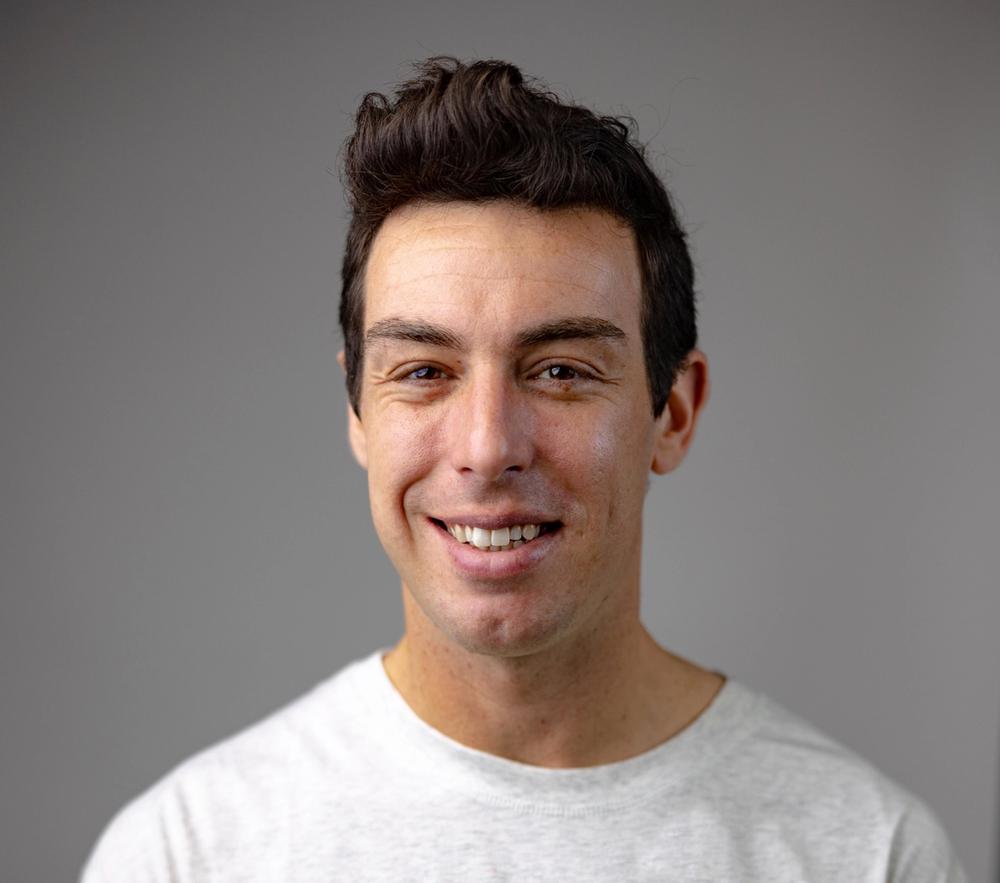
David Melly
David began contributing to CITIUS in 2018, and quickly cemented himself as an integral part of the team thanks to his quick wit, hot takes, undying love for the sport and willingness to get yelled at online.
